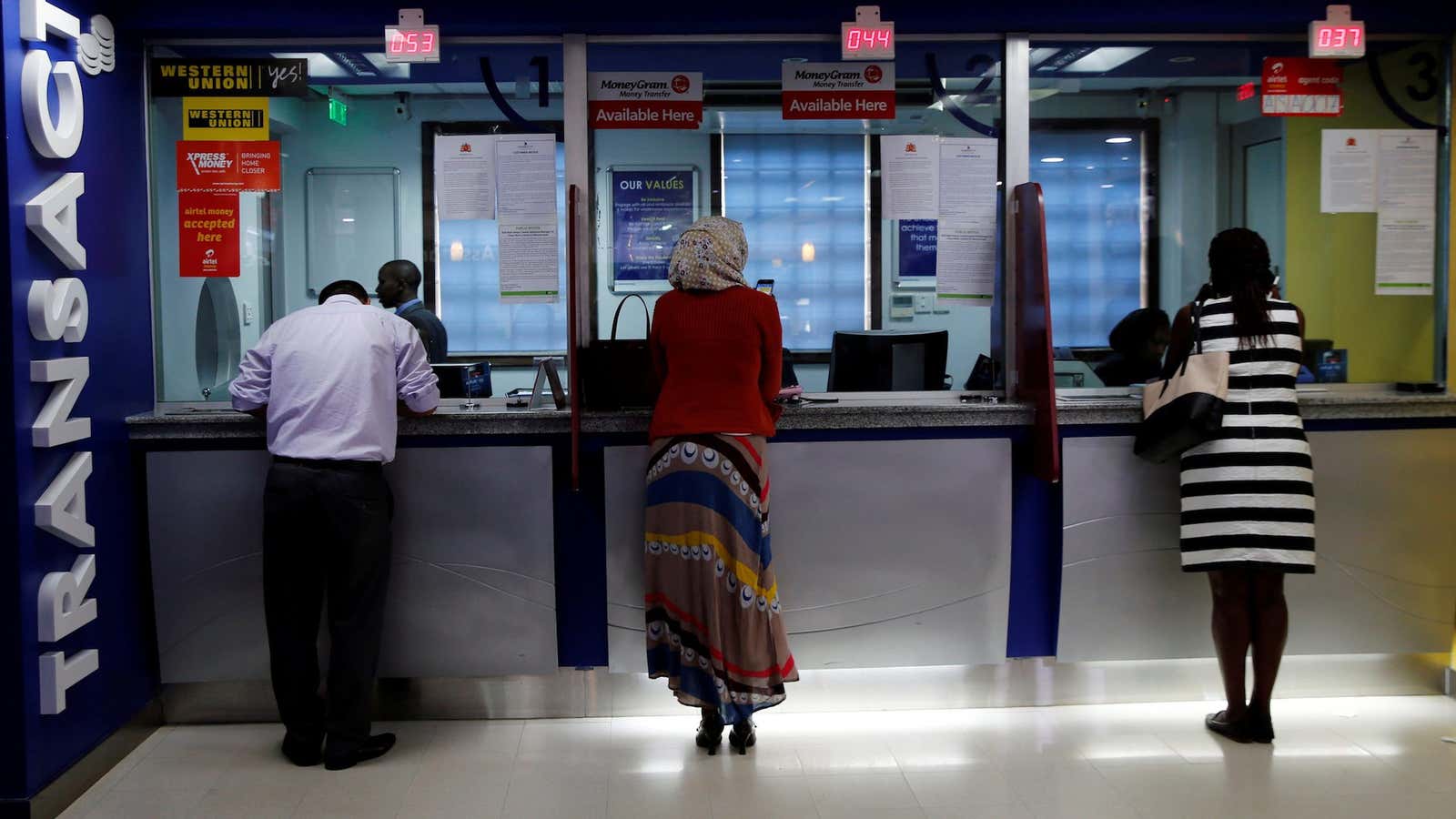Kenyan president Uhuru Kenyatta has signed into law a cap on commercial lending rates that economists, banking insiders, and other government officials say will only hurt the country. The law caps commercial bank lending at 4 percentage points above the central bank’s benchmark rate, which is currently 10.5%.
“I have consulted widely and it is clear to me from those consultations that Kenyans are disappointed and frustrated with the lack of sensitivity by the financial sector, particularly banks,” the president said in a statement released today (Aug 24).
Critics say Kenyatta’s decision is aimed at rallying support ahead of a general election next year. Calling the lending cap, ”Kenya’s Brexit“ Cytonn Investments, an investments and real estate company with offices in Kenya and Washington, described the lending cap as “a very populist move, fueled by anger, but an equally unwise move that we may quickly regret.”
Kenyan bankers, the ministry of finance, and the central bank have all spoken out against the lending cap bill, which was passed by parliament earlier this month. The bill, supported by trade unions, also includes a minimum deposit rate set at 70% of the benchmark rate, another measure aimed at helping Kenyan businesses who are struggling with loans of interest rates of about 18%.
Opponents say that instead of helping local businesses and borrowers, the cap could make it more difficult to get loans and more expensive. Fitch Ratings agency has said a cap will make it harder for lenders to price risk, encouraging them to shun riskier borrowers. Banks may also to introduce new fees and charges to maintain their profits.
More than 70 countries around the world have used interest rate caps before, but few have had success with what the World Bank calls a “still popular but blunt instrument.”
The Kenya Bankers Association, the country’s industry body, said it would comply with the law, however begrudgingly.
“The reality is that there is little evidence from other countries that such interventions have helped the majority of citizens, and in a number of countries such laws have been reversed to promote financial inclusion,” the association said in a statement.
